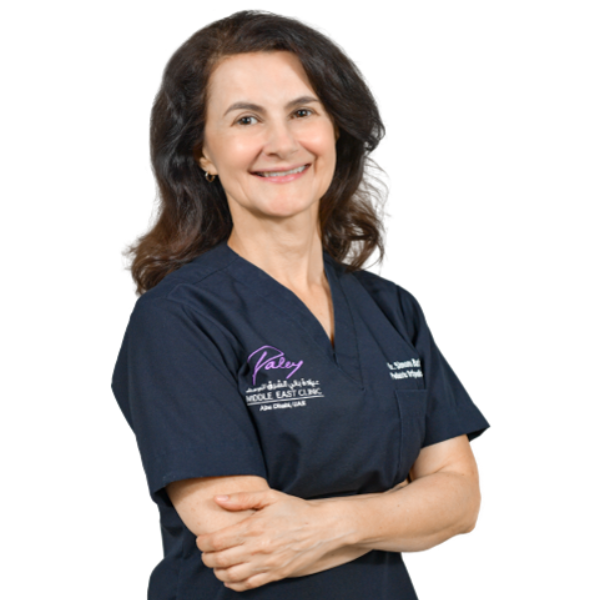Best Doctor in the World for Neuromuscular Disorders is:

If you're interested in getting a free quote, submit a request via this link. Take the first step towards a healthier future today!
Neuromuscular disorders encompass a wide range of conditions that affect the muscles and the nerves that control them. These disorders can lead to muscle weakness, wasting, and in some cases, life-threatening complications. With advancements in medical technology and a growing understanding of these conditions, specialized doctors worldwide have developed cutting-edge treatments to manage and, in some cases, improve the quality of life for those affected.
Understanding Neuromuscular Disorders
Neuromuscular disorders can be genetic or acquired and often involve the central nervous system, peripheral nerves, or muscles. Common disorders in this category include Amyotrophic Lateral Sclerosis (ALS), Muscular Dystrophy, Myasthenia Gravis, and Peripheral Neuropathy. These conditions can vary greatly in severity and progression, making early diagnosis and specialized treatment crucial.
Symptoms and Diagnosis
The symptoms of neuromuscular disorders can be subtle and develop gradually. Common symptoms include muscle weakness, twitching, cramping, and fatigue. In more severe cases, patients may experience difficulty swallowing, breathing, and speaking. Due to the diverse nature of these disorders, diagnosis often requires a comprehensive approach, including clinical evaluations, electromyography (EMG), nerve conduction studies, muscle biopsies, and genetic testing.
Treatment Approaches
- Pharmacological Treatments: Medications play a critical role in managing symptoms and slowing the progression of certain neuromuscular disorders. For example, corticosteroids are commonly used to reduce inflammation in conditions like Myasthenia Gravis, while antispasmodic drugs can help manage muscle spasms and stiffness.
- Physical Therapy and Rehabilitation: Physical therapy is essential for maintaining muscle strength and function. Specialized exercise programs, stretching, and occupational therapy can help patients manage daily activities and maintain a level of independence.
- Surgical Interventions: In some cases, surgery may be necessary to alleviate symptoms or correct deformities caused by muscle weakness. For instance, tendon transfer surgery can help improve limb function in patients with severe muscle atrophy.
- Innovative Therapies: Recent advancements have introduced new treatments, such as gene therapy and stem cell therapy. Gene therapy aims to correct defective genes responsible for certain neuromuscular disorders, offering hope for a potential cure. Stem cell therapy, on the other hand, focuses on regenerating damaged tissues, providing an avenue for repairing muscle and nerve damage.
- Assistive Devices: For patients with severe mobility issues, assistive devices such as braces, wheelchairs, and respiratory support systems can significantly improve quality of life.
The Role of Specialists
The management of neuromuscular disorders requires a multidisciplinary approach involving neurologists, physical therapists, pulmonologists, and other specialists. These professionals work together to develop personalized treatment plans tailored to the unique needs of each patient. The best doctors in this field not only possess extensive knowledge of the latest treatments but also prioritize patient care, ensuring a comprehensive approach to managing these complex conditions.
Choosing the Right Specialist
When seeking treatment for neuromuscular disorders, finding the right specialist is crucial. Patients should look for doctors with experience in managing specific conditions, access to advanced diagnostic tools, and a collaborative approach to patient care. Additionally, it's essential to consider the specialist's involvement in clinical trials and research, as this can indicate their commitment to staying at the forefront of medical advancements.
Global Perspective
Neuromuscular disorder treatment is a global field, with top specialists located around the world. While the United States and Western Europe have a strong reputation for advanced medical care, many other countries also offer high-quality treatment options. Patients seeking treatment abroad should consider factors such as the quality of healthcare infrastructure, the availability of specialized care, and the cost of treatment.
In conclusion, Neuromuscular disorders present significant challenges, but with the expertise of the best doctors and access to advanced treatments, many patients can achieve better outcomes and an improved quality of life. As medical science continues to evolve, new therapies and treatment approaches will likely emerge, offering hope to those affected by these complex conditions. For individuals and families navigating the journey of neuromuscular disorders, staying informed and working with experienced specialists are vital steps toward managing and overcoming these challenges.






.png)

